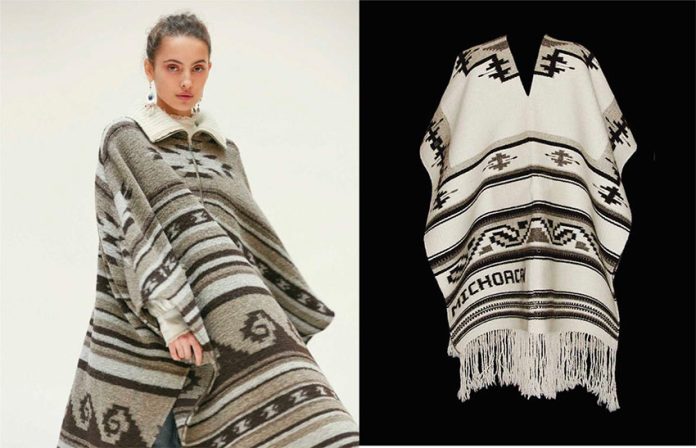A fashion designer has once again raised concerns over the plagiarism of indigenous designs.
Culture Minister Alejandra Frausto has written to French designer Isabel Marant to question her use of indigenous Mexican patterns in her latest fall-winter collection.
Frausto told Marant that she has used designs from the Purépecha communities of Michoacán as well as those of indigenous people in México state, Tlaxcala, San Luis Potosí and Oaxaca.
“In the 2020-21 Etoilé winter-fall collection designs that belong to the Purépecha culture of Michoacán appear. Some symbols that you took have a profound meaning for this culture. … These symbols are very old and have been conserved thanks to the memory of the artisans,” she wrote.
The minister made specific reference to a cape in Marant’s collection, saying it “imitates the geometry and proportions of Mexican sarapes and jorongos,” which are long, blanket-like shawls.
“I ask you, Ms. Isabel Marant, to publicly explain on what grounds you privatize a collective property, making use of cultural elements whose origin is fully documented,” Frausto wrote.
She also asked the designer to explain how her use of traditional Mexican designs benefits the communities that first created them. Protecting the rights of people who have historically been “made invisible” is an “urgent issue” that must be publicly discussed around the world, Frausto said.
“From the Culture Ministry of Mexico we invite you to carry out respectful work with the indigenous communities within an ethical framework that doesn’t undermine the identity and economy of the people,” the minister told Marant.
The news agency Reuters said that Marant didn’t immediately respond to its request for comment on the issue but noted that her company’s website says that it is committed to ethical and responsible behavior.
Frausto’s letter to the designer comes after a group of senators accused her of plagiarizing indigenous designs.
At a press conference in late August, ruling party Senator Susana Harp said it was the second time that Marant has appropriated Mexican designs, recalling that she was accused in 2015 of copying a blouse designed in Tlahuitoltepec, Oaxaca.
The senator called on Foreign Minister Marcelo Ebrard to forge an agreement against cultural appropriation with France, which she described as “the country that has plagiarized us the most.”
Frausto has previously called out Venezuelan-born designer Carolina Herrera and French fashion and luxury goods company Louis Vuitton for appropriating traditional Mexican designs without acknowledging their creators or passing on any benefits to indigenous communities.
She sent letters to both last year, asking for explanations and calling on them to work with the indigenous communities whose work they have appropriated.
Several other designers and fashion labels including Michael Kors, Zara and Mango have also been accused of copying Mexican designs.
Source: El Universal (sp), Reuters (en)
